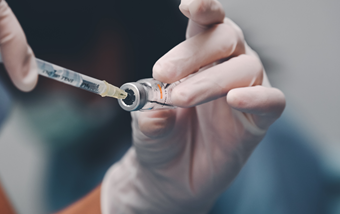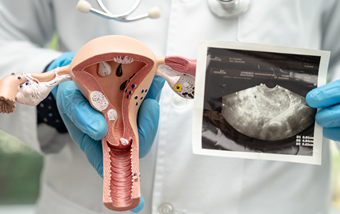We feel incredibly lucky that the NHS has been able to (a) identify our issue and (b) offer us a round of IVF and although we don’t know how long it will be before we actually start the IVF, what we do know is that it took a lot longer to get to this point than we thought it would…
I remember the first time we visited the doctor to talk about our struggle conceiving. I sat in the waiting room beforehand feeling the sort of weird nerves you get before you take a faulty item back to the shop and ask for your money back. Whatever nonsensical ramblings came out my mouth in that appointment, the underlying notion was something to the effect of “WHERE’S MY BABY?!”. After years of very carefully following advice from doctors on how to avoid pregnancy - where was the baby they warned me I’d make if I ever ditched the contraceptives? And let’s be clear, I wasn’t just ditching the contraceptives, I was renouncing them altogether. I was tracking every little ovary twitch, practising very decidedly un-safe sex and sleeping with my legs in the air. So where was my baby? Whilst the doctor attempted to provide me with an answer that was somewhere between sympathetic and “pull yourself together woman”, I realised that this would probably be the first of many appointments to come.
Navigating fertility struggles, whether you do this privately or with the NHS, is essentially trial and error. It’s a long process – made longer if (like me) you have a tendency to dilly-dally over decisions or convince yourself that a natural pregnancy is always just around the corner. In my case, it wasn't. So my husband and I became experts at skipping all the appointment small talk and getting straight to the point: what’s working, what’s not working, which uncomfortable procedure/medication is next on the list. Ok, got it, go.
The initial fertility tests were offered to me - the female. I was booked in for a general health MOT and a couple of blood tests to check my hormone levels - all fine. I was told to relax, book a holiday (yes, really!) and come back in 6 months if nothing had happened. "You're young, don't worry, you have plenty of time"etc etc.
Six months, one relaxing holiday and several negative pregnancy tests later - I returned. The next doctor told me that perhaps there was some kind of blockage stopping the sperm from travelling up the fallopian tubes. A procedure called a "HyCoSy" (dye injected into the cervix followed by an x-ray - lovely) would be needed but the NHS had a 3 month waiting list. By this point we'd already been trying for 18 months and were starting to get impatient so I chose to have this procedure at a private practice. I returned to my GP the following week with the results in my hand - quite a significant dent in my wallet but results nonetheless. Again, all was fine.
Then the medical spotlight turned to my husband and over the course of the next 3 months we learnt that although he was very healthy and had a notably high sperm count, almost all of them just swam in circles unhelpfully chasing their tail until they died. We were crushed. But at least we had an answer and therefore a plan...of sorts. It took another 4 months of meds and a repeat of several blood tests before we finally got our appointment to sit down with the specialist and discuss body clocks, swimming lessons and, of course, IVF.
So our experience with IVF on the NHS (sped up slightly by our decision to have the HyCoSy procedure at a private practice) took just over a year. With hindsight, I can tell you that this process would've been a lot quicker if we'd been able to afford to do it privately. The NHS is amazing and a service in which I believe we should absolutely protect but their priority (and rightly so) is to save lives first and create lives second.
So now we wait....
Lauren, The Dinky Blog




